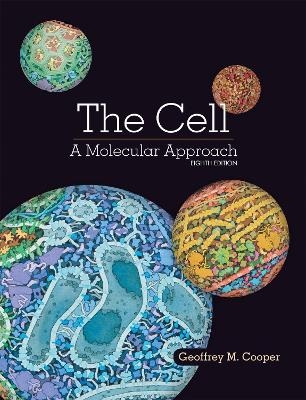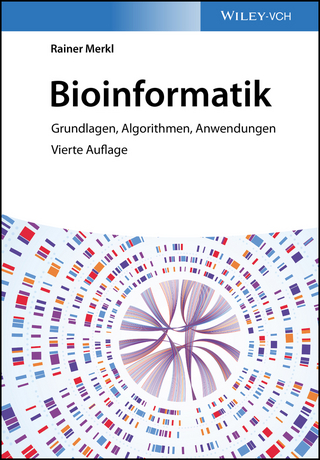
The Cell
Oxford University Press Inc (Verlag)
978-1-60535-707-2 (ISBN)
endeavors to address those issues with succinct writing, incorporation of current research, a test bank that encourages critical thinking, and an active learning framework. With just enough detail for a
one-semester, sophomore/junior level course, the text presents fundamental concepts and current research, including chapters on Genomics and Transcriptional Regulation and Epigenetics, and new in-text boxed features on Molecular Medicine and Key Experiments. Instructors will appreciate updates to the eighth edition test bank, such as raising the Bloom's level of questions overall, and giving instructors the ability to select questions based on level. Finally, for
instructors who want to flip their classrooms or just get students more engaged, The Cell, Eighth Edition, is the only cell biology text that is accompanied by an Active Learning Guide. This chapter-by-chapter
playbook shows instructors how to create a dynamic learning environment with in-class exercises, clicker questions, and links to relevant media, animations, testing, and self-quizzing, all aligned with the new in-text learning objectives, wherever appropriate. This text provides the right level of detail, student engagement, and instructor support for the modern cell biology classroom.
Geoffrey M. Cooper is Professor Emeritus of Biology at Boston University. Receiving a Ph.D. in Biochemistry from the University of Miami in 1973, he pursued postdoctoral work with Howard Temin at the University of Wisconsin, where he developed gene transfer assays to characterize the proviral DNAs of Rous sarcoma virus and related retroviruses. He then joined the faculty of Dana-Farber Cancer Institute and Harvard Medical School in 1975, where he pioneered the discovery of oncogenes in human cancers. Since moving to Boston University in 1998, he has served as Chair of Biology and Associate Dean of the Faculty for Natural Sciences, as well as teaching undergraduate cell biology and continuing his research on the roles of oncogenes in the signaling pathways that regulate cell proliferation and programmed cell death. He has authored over 100 research papers, two textbooks on cancer and an award-winning novel, The Prize, dealing with fraud in medical research.
Part I: Fundamentals and FoundationsChapter 1. Introduction to Cells and Cell ResearchChapter 2. Molecules and MembranesChapter 3. Bioenergetics and MetabolismChapter 4. Fundamentals of Molecular BiologyChapter 5. Genomics, Proteomics, and Systems BiologyPart II: The Flow of Genetic InformationChapter 6. Genes and GenomesChapter 7. Replication, Maintenance, and Rearrangements of Genomic DNAChapter 8. RNA Synthesis and ProcessingChapter 9. Transcriptional Regulation and EpigeneticsChapter 10. Protein Synthesis, Processing, and RegulationPart III: Cell Structure and FunctionChapter 11. The NucleusChapter 12. Protein Sorting and TransportChapter 13. Mitochondria, Chloroplasts, and PeroxisomesChapter 14. The Cytoskeleton and Cell MovementChapter 15. The Plasma MembraneChapter 16. Cell Walls, the Extracellular Matrix, and Cell InteractionsPart IV: Cell RegulationChapter 17. Cell SignalingChapter 18. The Cell CycleChapter 19. Cell Renewal and Cell DeathChapter 20. Cancer
| Erscheinungsdatum | 02.10.2018 |
|---|---|
| Reihe/Serie | Sinauer |
| Verlagsort | New York |
| Sprache | englisch |
| Gewicht | 1920 g |
| Themenwelt | Informatik ► Weitere Themen ► Bioinformatik |
| Medizin / Pharmazie ► Medizinische Fachgebiete ► Onkologie | |
| Studium ► 1. Studienabschnitt (Vorklinik) ► Physiologie | |
| Naturwissenschaften ► Biologie ► Genetik / Molekularbiologie | |
| Naturwissenschaften ► Biologie ► Zellbiologie | |
| ISBN-10 | 1-60535-707-3 / 1605357073 |
| ISBN-13 | 978-1-60535-707-2 / 9781605357072 |
| Zustand | Neuware |
| Haben Sie eine Frage zum Produkt? |
aus dem Bereich


